The launch of the Nvidia GeForce RTX 5090 was met with disappointment, as it offered only a modest improvement over the RTX 4090 while commanding a significantly higher price. In contrast, the Nvidia GeForce RTX 5070 Ti, while not much faster than its predecessor, provides a more budget-friendly option, making it the most sensible choice from the Blackwell series for those looking to upgrade without breaking the bank.
At a base price of $749, the GeForce RTX 5070 Ti stands out as an excellent choice for 4K gaming, effectively overshadowing the pricier RTX 5080. It's important to note, however, that the review model I tested was an aftermarket MSI version, priced at a steep $1,099. This makes it less of a bargain, especially when compared to the $999 RTX 5080. If you manage to snag the RTX 5070 Ti at its base price of $749, it's likely the best option for most gamers, particularly those eyeing 4K gaming.
Purchasing Guide
The Nvidia GeForce RTX 5070 Ti will be available starting February 20, 2025, with a starting price of $749. Be aware that various models will be available at higher price points. At its base price, it offers excellent value, but as the price approaches that of the RTX 5080, its appeal diminishes.
Nvidia GeForce RTX 5070 Ti – Photos
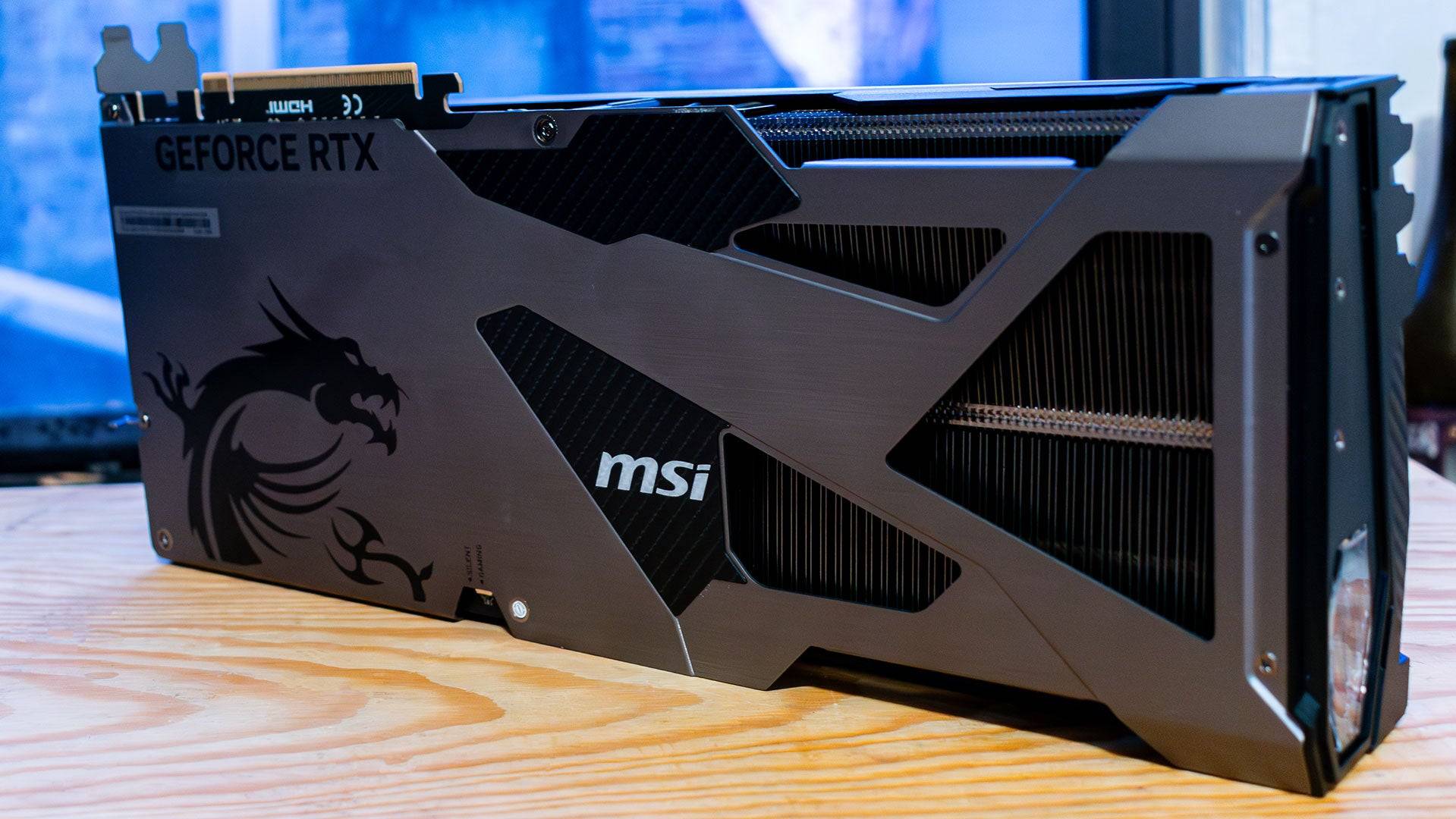
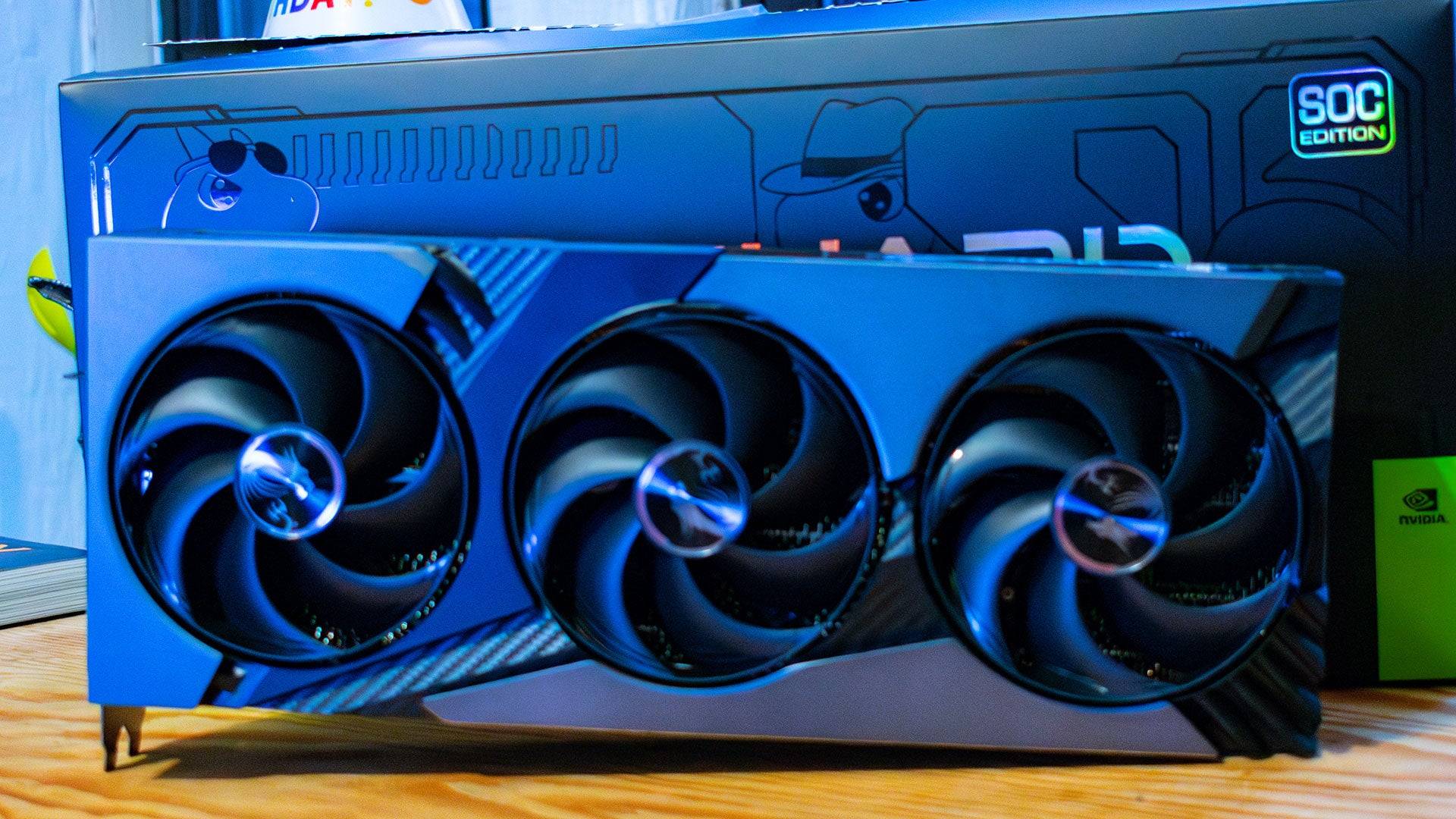 6 Images
6 Images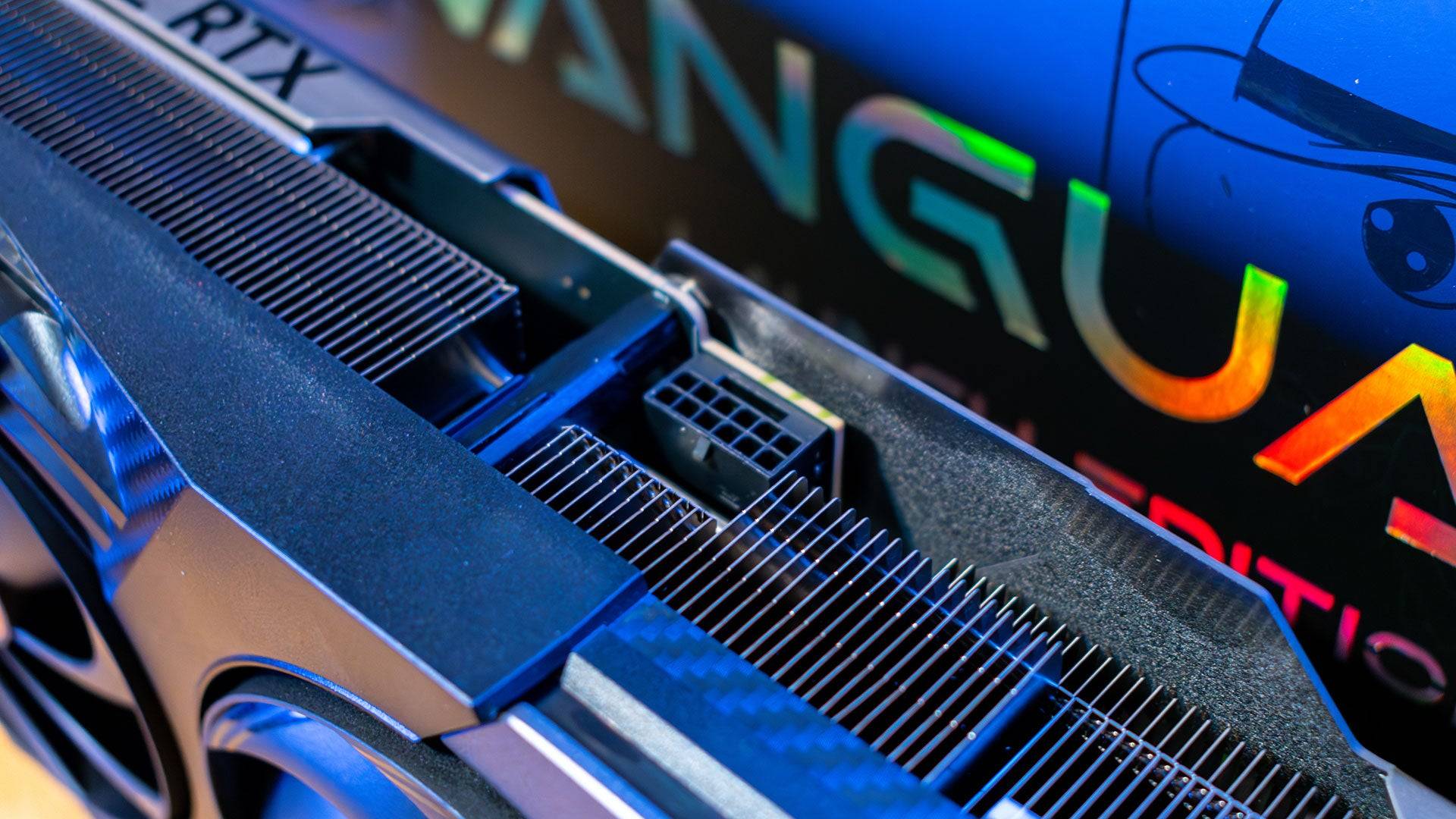
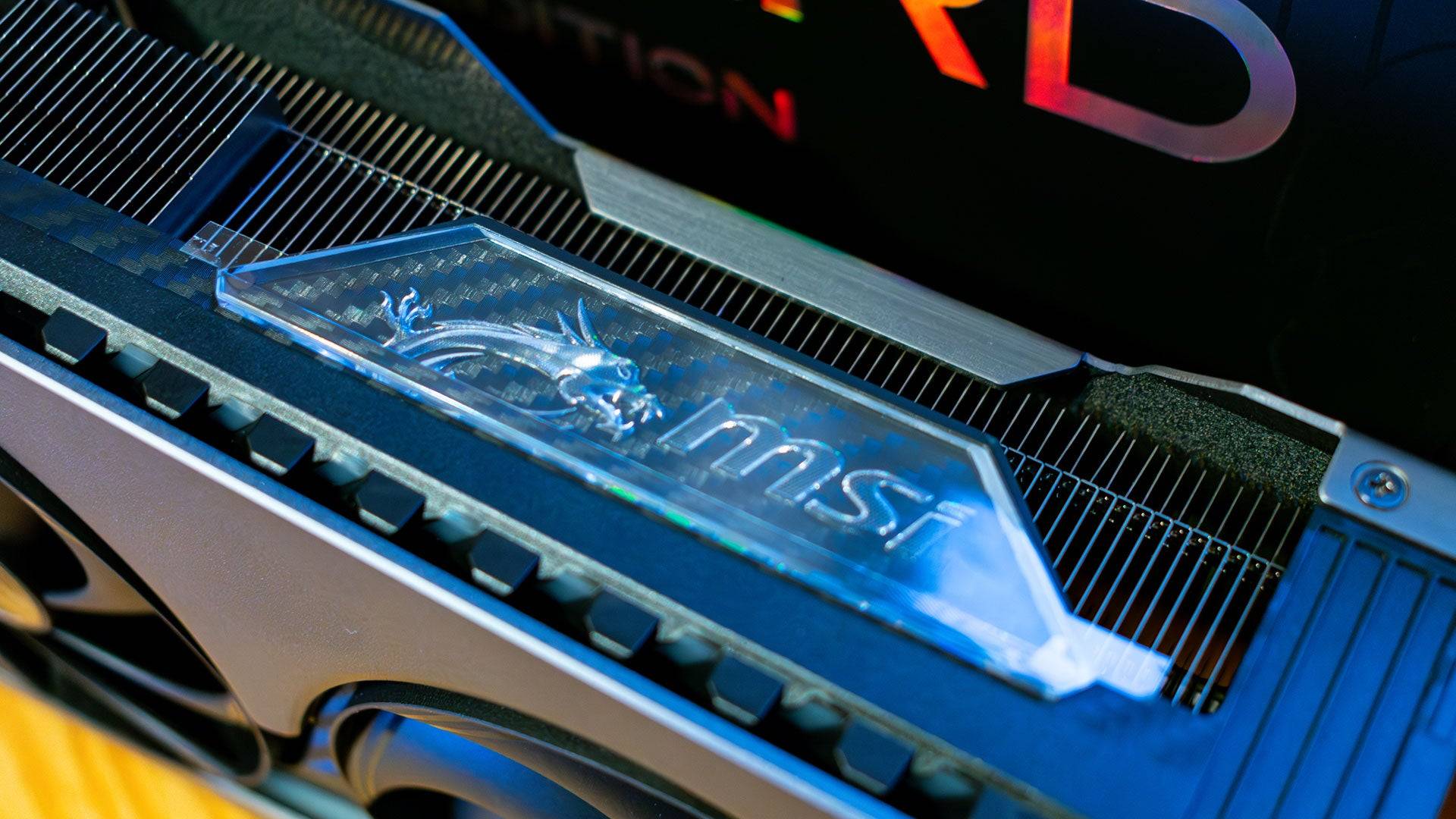
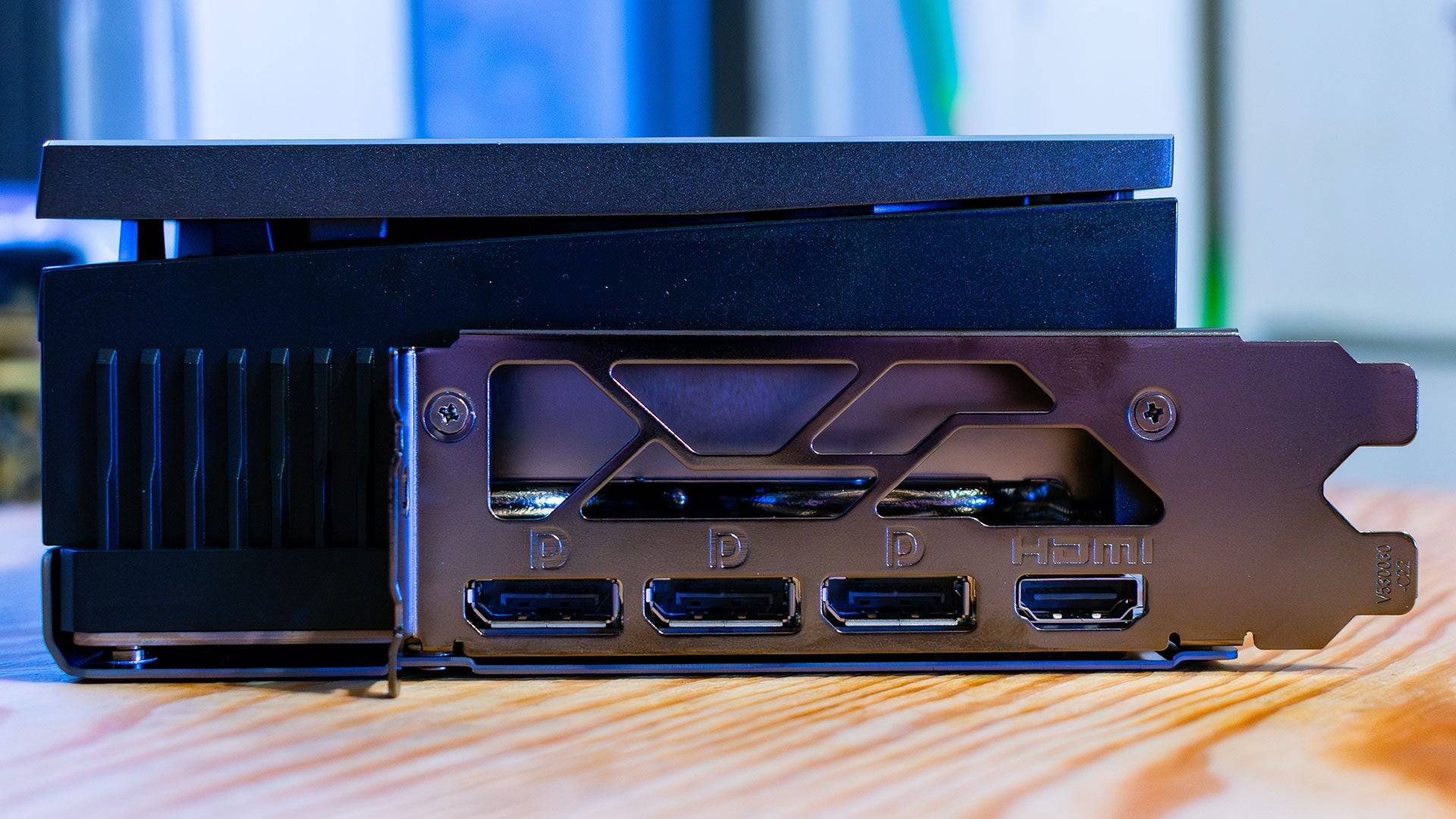

Specs and Features
The Nvidia GeForce RTX 5070 Ti, the third card in the Blackwell lineup, leverages the same architecture initially designed for AI supercomputers. It uses the GB203 GPU, similar to the RTX 5080, but with 14 of its streaming multiprocessors (SM) disabled, resulting in 70 SMs, 8,960 CUDA cores, 70 RT cores, and 280 Tensor Cores. Equipped with 16GB of GDDR7 RAM, the RTX 5070 Ti focuses heavily on AI-driven enhancements, particularly through its Tensor Cores, which power Nvidia's AI upscaling and frame generation technologies.
A significant innovation in the RTX 5070 Ti is the introduction of the AI Management Processor (AMP), which optimizes workload distribution on the GPU, enhancing the efficiency of technologies like DLSS and frame generation. This efficiency has enabled Nvidia to upgrade DLSS to use a Transformer model, significantly improving image quality by reducing ghosting and artifacts.
Additionally, DLSS 4 introduces "Multi-Frame Generation" (MFG), which can generate up to three AI frames for each rendered frame, potentially quadrupling frame rates. While this increases latency, Nvidia's Reflex technology helps mitigate this effect, ensuring smoother gameplay on high-refresh-rate monitors.
With a total board power of 300W, the RTX 5070 Ti is only slightly more power-hungry than its last-gen counterparts. Nvidia suggests a 750W power supply, but for added safety, especially with high-end models like the MSI Vanguard Edition, an 850W PSU is recommended.

DLSS 4 – Is It Worth It?
The RTX 5070 Ti's performance is a step up from its predecessor, but Nvidia's emphasis on DLSS 4 and multi-frame generation is the real highlight. This technology is particularly beneficial for gamers with high-refresh-rate monitors, enhancing visual smoothness without dramatically increasing latency.
In Cyberpunk 2077, with the Ray Tracing Overdrive preset and DLSS set to performance, the RTX 5070 Ti achieves 46 fps with 43ms latency. With 2x frame generation, this jumps to 88 fps with a slight latency increase to 49ms. When using 4x frame generation, the frame rate reaches 157 fps, though latency rises to 55ms, demonstrating a significant improvement in frame rate with manageable latency increases.
In Star Wars Outlaws, the RTX 5070 Ti delivers 67 fps at 4K max settings with DLSS on performance. Activating 2x frame generation boosts this to 111 fps, with latency decreasing from 47ms to 34ms thanks to Reflex. With 4x frame generation, the frame rate hits 188 fps, with latency at 37ms. These results show that while multi-frame generation can enhance smoothness, responsiveness may be slightly affected.
Nvidia GeForce RTX 5070 Ti – Benchmarks
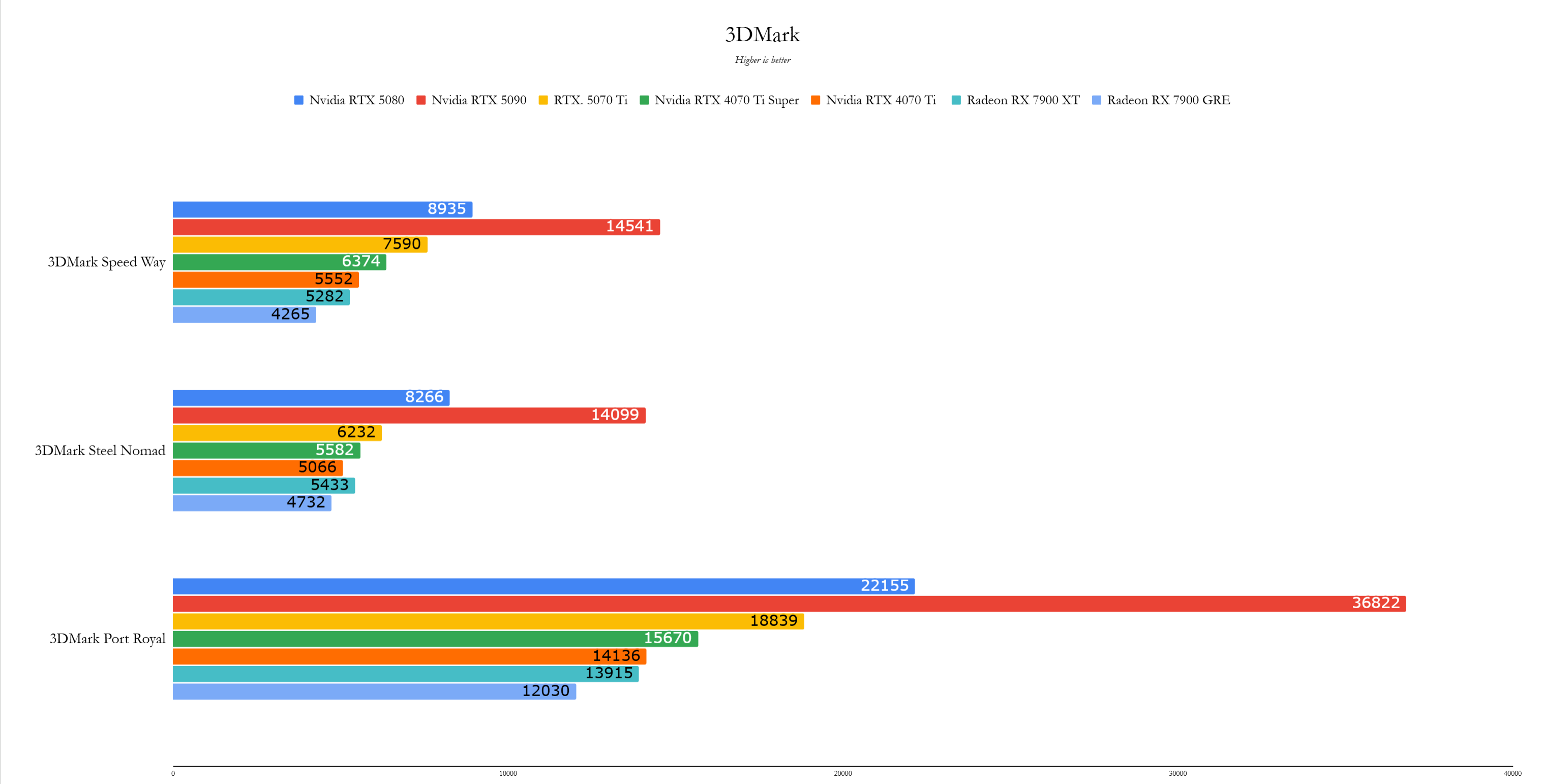
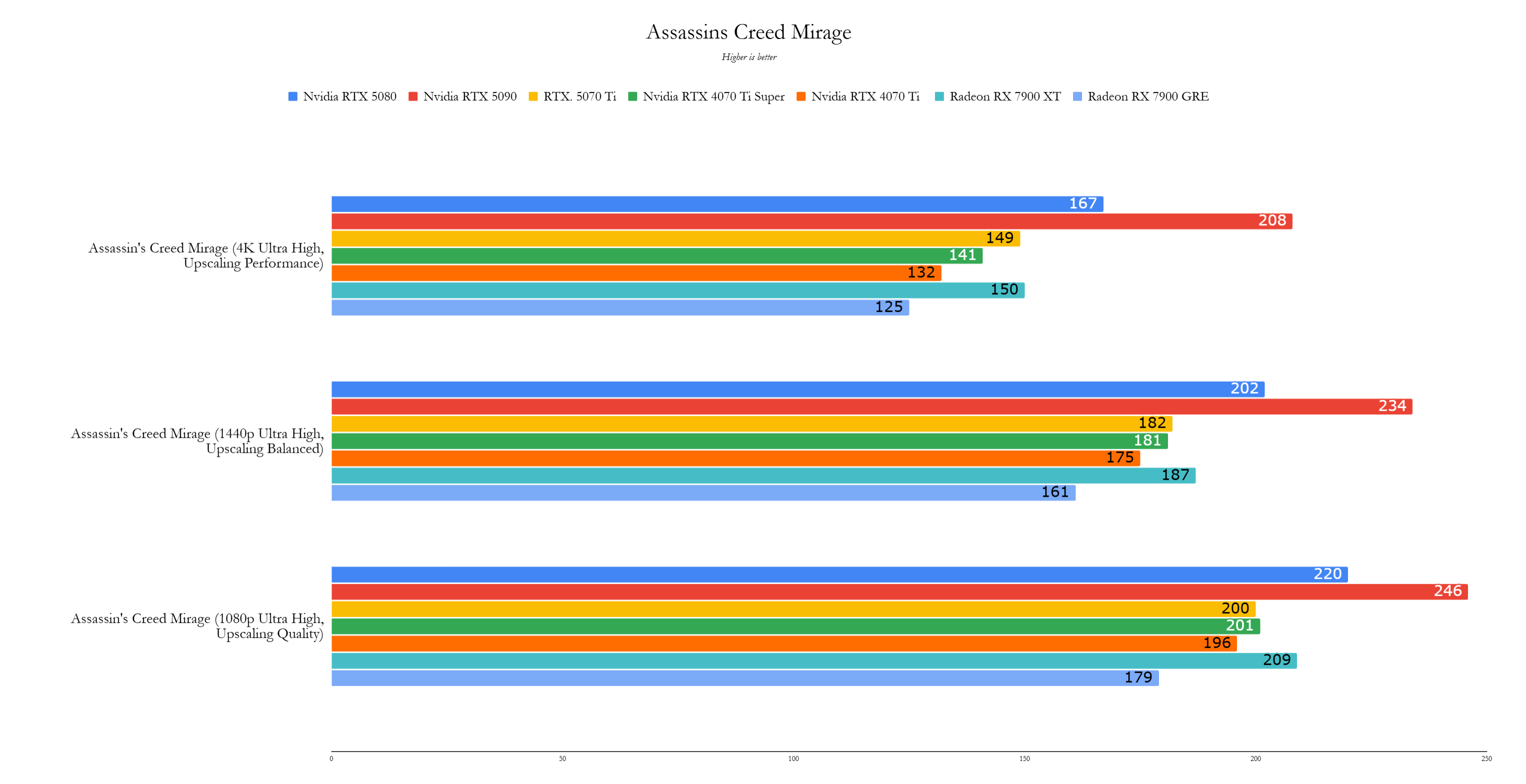 12 Images
12 Images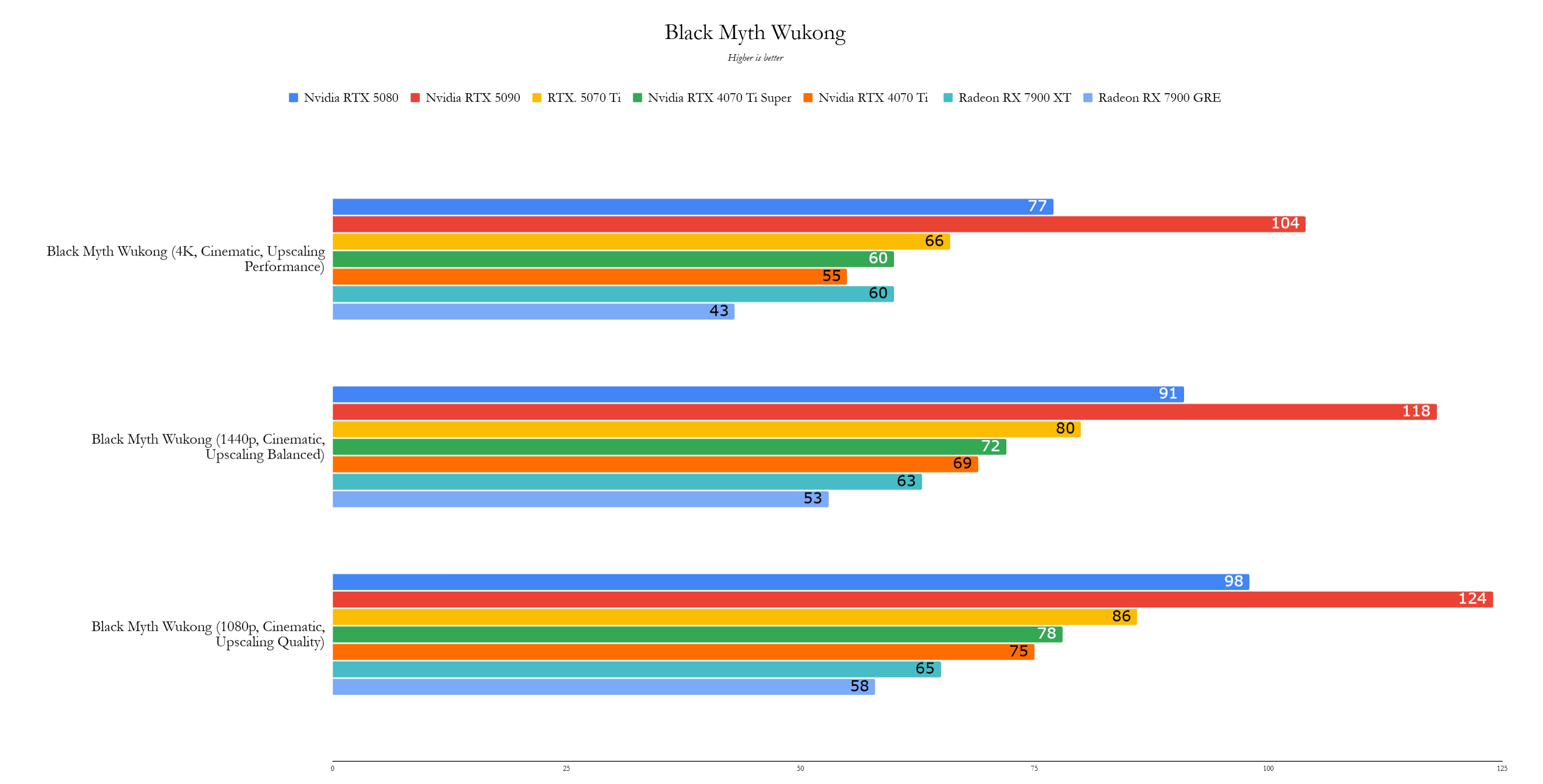
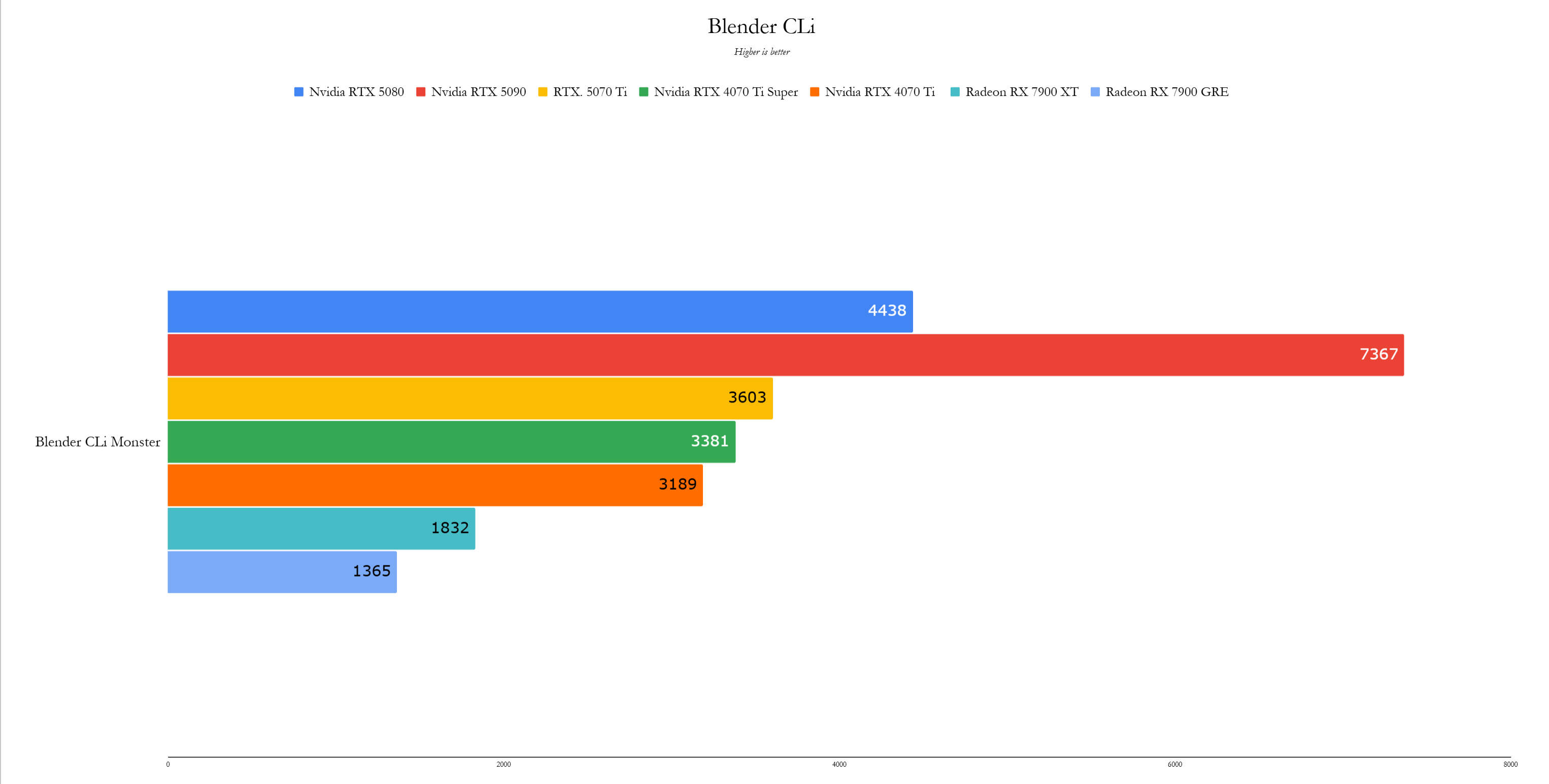
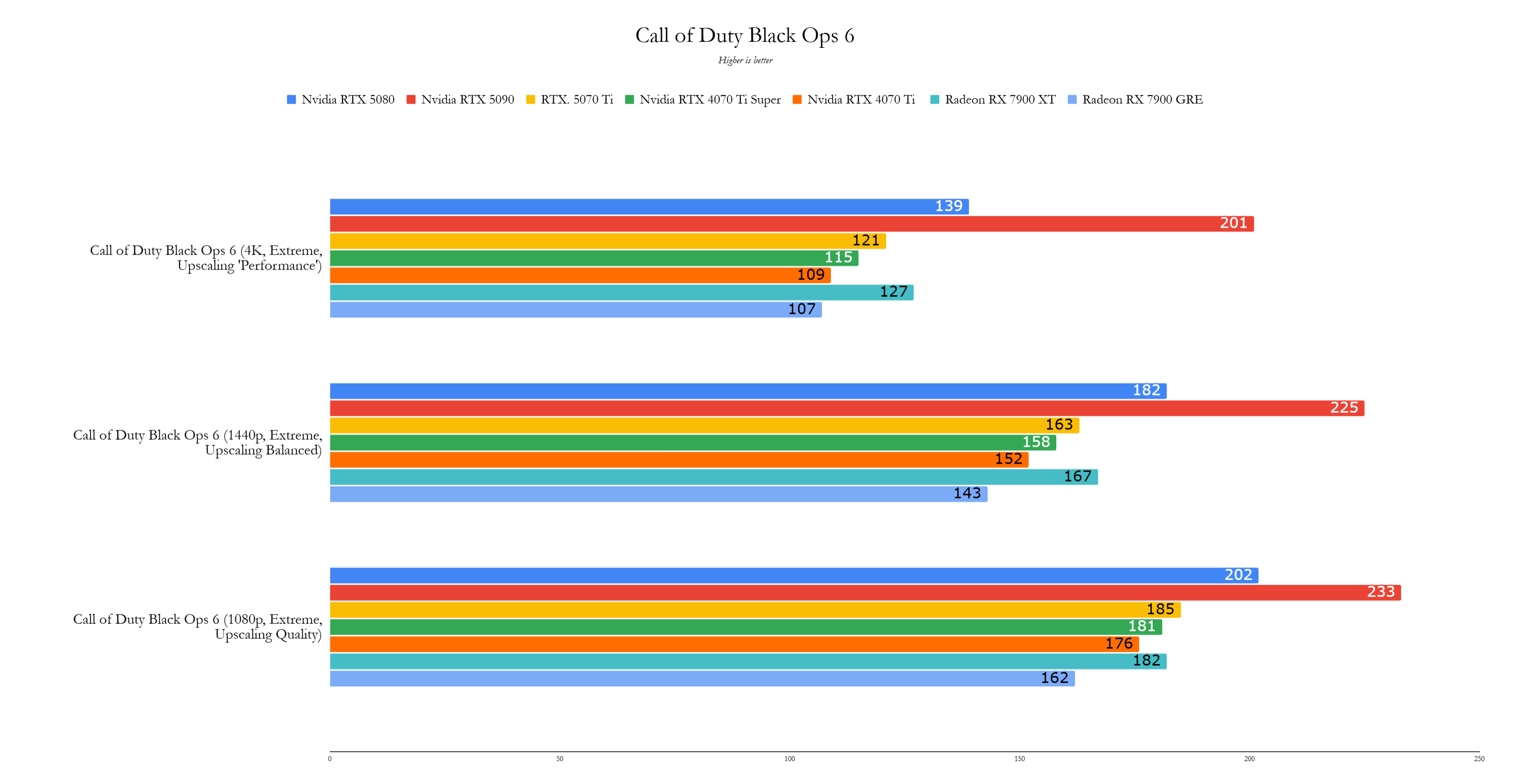
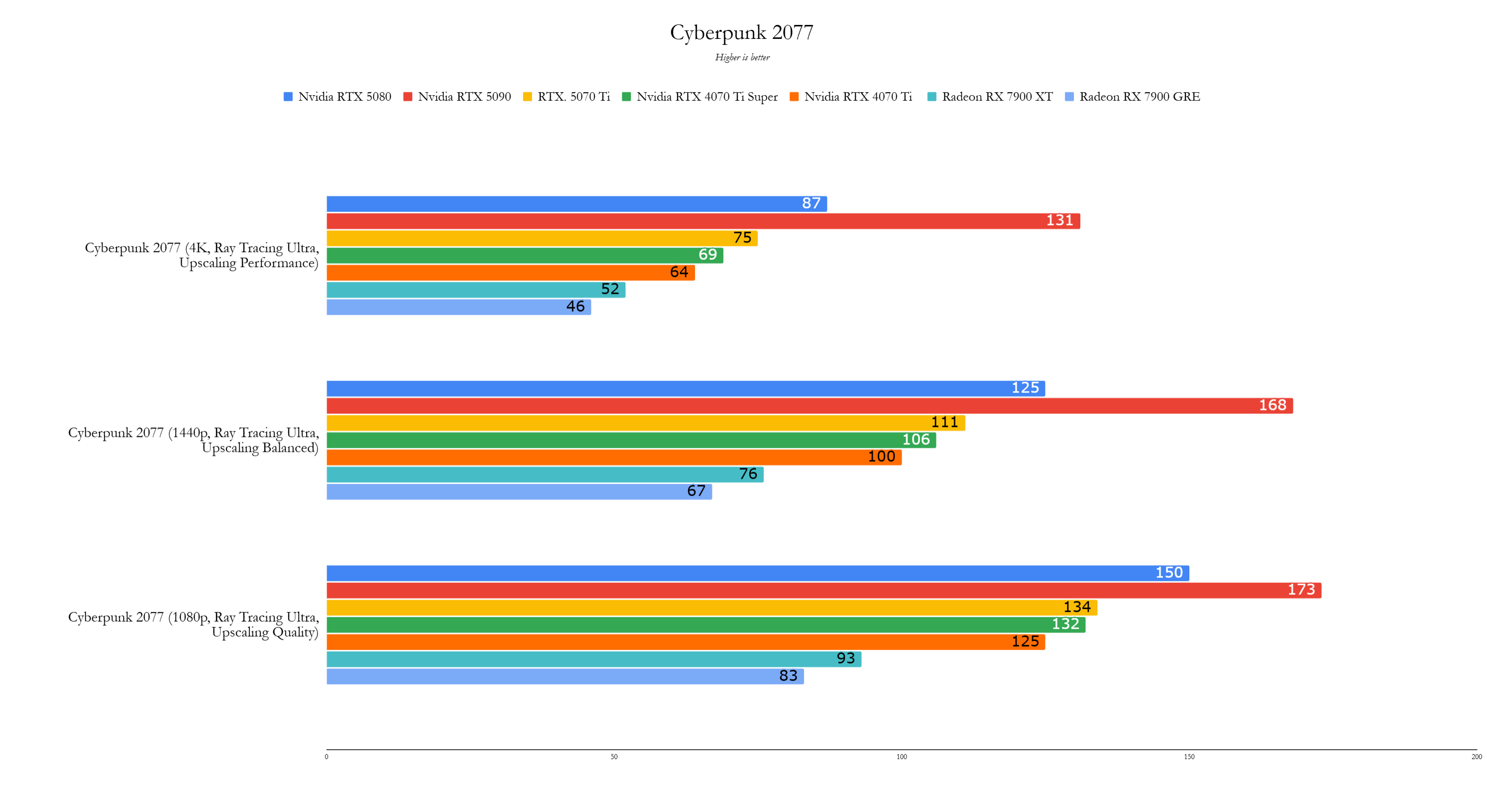
Performance
At 4K resolution, the Nvidia GeForce RTX 5070 Ti outperforms the RTX 4070 Ti Super by about 11% and the RTX 4070 Ti by 21%, marking a substantial generational improvement. This makes the RTX 5070 Ti the best value proposition among the new Blackwell GPUs. It consistently achieves over 60 fps at 4K in demanding titles like Black Myth Wukong and Cyberpunk 2077.
The test system used included an AMD Ryzen 7 9800X3D, an Asus ROG Crosshair X870E Hero motherboard, 32GB of G.Skill Trident Z5 Neo RAM at 6,000MHz, a 4TB Samsung 990 Pro SSD, and an Asus ROG Ryujin III 360 CPU cooler. Despite testing the MSI Vanguard SOC model, the RTX 5070 Ti was evaluated at stock settings to reflect performance at its base MSRP of $749.
In 3DMark Speed Way, the RTX 5070 Ti scores 7,590 points, compared to 6,374 for the RTX 4070 Ti Super and 5,552 for the RTX 4070 Ti, marking a 19% and 36% improvement, respectively. In Port Royal, it scores 18,839 points, showcasing its potential for future optimizations.
In real-world gaming scenarios, the RTX 5070 Ti shows mixed results. In Call of Duty: Black Ops 6, it achieves 121 fps at 4K Extreme settings, a modest 5% improvement over the RTX 4070 Ti Super. In Cyberpunk 2077, it outperforms the RTX 4070 Ti Super by 9% and the RTX 4070 Ti by 17%, maintaining 75 fps at 4K with Ray Tracing Ultra.
Metro Exodus: Enhanced Edition sees the RTX 5070 Ti at 48 fps at 4K on the Extreme preset, slightly ahead of the RTX 4070 Ti Super's 45 fps. Red Dead Redemption 2 is an anomaly, with the RTX 5070 Ti being 2% slower than the RTX 4070 Ti Super, though it still delivers a high 113 fps.
Total War: Warhammer 3, without ray tracing or upscaling, highlights the RTX 5070 Ti's rasterization performance, achieving 78 fps at 4K max settings, a 15% and 30% improvement over the RTX 4070 Ti Super and RTX 4070 Ti, respectively.
In Assassin's Creed Mirage, the RTX 5070 Ti achieves 149 fps at 4K with the Ultra High preset, slightly behind the Radeon RX 7900 XT's 150 fps. Black Myth Wukong, a demanding title, sees the RTX 5070 Ti at 66 fps at 4K with the Cinematic Preset and DLSS set to 40%, outperforming the RTX 4070 Ti Super and Radeon RX 7900 XT, both at 60 fps.
Forza Horizon 5, a game that typically favors AMD GPUs, sees the RTX 5070 Ti at 152 fps at 4K with the Extreme preset, a 15% improvement over the RTX 4070 Super and 21% over the RTX 4070 Ti, and even a 10% lead over the Radeon RX 7900 XT.
In summary, the Nvidia GeForce RTX 5070 Ti, especially at its starting price of $749, offers the best value for 4K gaming. It's the first RTX 5000 series card to provide a significant generational uplift at a more affordable price point than its predecessor, the RTX 4070 Ti, making it a compelling choice for gamers looking to upgrade to 4K gaming without breaking the bank.















